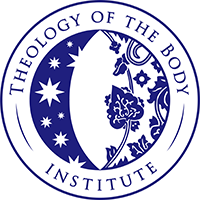

Don’t Be Fooled by Those Who Are “Re-interpreting” Humanae Vitae
Don’t Be Fooled by Those Who Are “Re-interpreting” Humanae Vitae

This July 25 marks 50 years since Pope Paul VI shocked the world when he issued his encyclical letter Humanae Vitae (Of Human Life) reaffirming the traditional Christian teaching against contraception. Although he was mocked and scorned globally – both from outside and, sadly, from within the Church – his words were prescient. He warned that a contracepting world becomes a world of rampant infidelity; a world where women and childbearing are degraded; a world in which governments trample on the rights and needs of the family; and a world in which human beings believe they can manipulate their bodies at will (see HV 17).
Is there any doubt that this is the world we live in now?
We will never climb out of the sexual confusion and gender chaos in which we are now immersed until we recognize that the modern disorientation of sex and the eclipse of the very meaning of gender began when we started rendering our genitals unable to generate. Based on its Greek root, the very word gender means “the manner in which one generates.” We see the same root in words like genesis, generous, genitals, progeny, genes, and genealogy. We no longer see the gender-generation connection today because we are viewing ourselves through condom-colored glasses: erase the manner in which one generates from the sexual equation and the very meaning of gender is eventually erased.
In a 1984 interview, the future Pope Benedict XVI predicted that we will atone in our day for “the consequences of a sexuality which is no longer linked to … procreation. It logically follows from this that every form of [genital activity] is equivalent. … No longer having an objective reason to justify it, sex seeks the subjective reason in the gratification of the desire, in the most ‘satisfying’ answer for the individual.” In turn, he observed that everyone becomes “free to give to his personal libidothe content considered suitable for himself. Hence, it naturally follows that all forms of sexual gratification are transformed into the ‘rights’ of the individual.” From there, he concluded that people end up demanding the right of “escaping from the ‘slavery of nature,’ demanding the right to be male or female at one’s will or pleasure” (The Ratzinger Report, pp. 85, 95).
Again, is there any doubt that this is the world we now live in?
Tragically, there are people in high places of the Church who have not been paying attention to the painful lessons of history – nor to the extensive and gloriously illuminating reflections of Saint John Paul II on the theology of the human body. As the 50th anniversary of Paul VI’s lifesaving encyclical approaches, they are raising their voices in a new wave of attacks against it. The operative language is that of “re-interpreting” Paul VI’s encyclical in order to keep it “dynamic” and “applicable” to “new realities.” But that is code for dissenting from it.
Perhaps you heard about a widely reported speech given by Father Maurizio Chiodi, a newly appointed member of the Pontifical Academy for Life, at a conference at the Gregorian University in Rome at the end of last year. Therein he argued that a proper development of Paul VI’s teaching on “responsible parenthood” can actually obligate a couple to use contraception. There are cases, he argued, that make the practice of natural family planning “impossible or impractical” and, hence, “other forms of responsibility must be found” that require “other methods of birth control.”
If we consider the teaching of Humanae Vitae only as a precept to be imposed on people’s weakness, we are, indeed, placing an “impossible” and “impractical” burden on people. As Saint John Paul II insisted, “Love and life according to the Gospel cannot be thought of first and foremost as a kind of precept, because what they demand is beyond man’s abilities. They are possible only as a result of a gift of God who heals, restores, and transforms the human heart by his grace.” Living according to the demands of the Gospel, then, is “a possibility opened to man exclusively by grace, by the gift of God, by his love” (Veritatis Splendor 23, 24).
The Church does not only lay down the demands of God’s law and then leave men and women to their own resources in attempting to carry it out. As Pope Paul VI stated very clearly in Humanae Vitae, the Church “also announces the good news of salvation, and by means of the sacraments flings wide open the channels of grace, which makes man a new creature, capable of following the design of his Creator … with love and true freedom, finding the yoke of Christ to be sweet” (HV 25).
Yes, human beings are weak and must contend with the strong pull of concupiscence (the disordering of our passions that resulted from original sin). As human experience attests, this makes following God’s law a real struggle. But it is precisely that struggle that urges the heart to cry out for God’s grace, and God’s grace is sufficient for us (see 2 Cor 12:9)! As Saint Augustine put it in a wonderful turn of phrase: “The law was given so that grace might be sought; and grace was given that the law might be fulfilled.”
“Re-interpreting” Humanae Vitae in light of human weakness may seem like the “kind” or “pastoral” thing to do, but in the end it empties the Cross of its power. Instead of saying, “By the power of Christ, come higher,” those who are re-interpreting Humanae Vitae are actually saying, “Sorry, Christ’s power is not available to you, so stay lower.” Instead of saying, “God’s grace is sufficient for you to fulfill his law,” those who are re-interpreting Humanae Vitae are saying, “In your case, we need to adjust God’s law according to your concrete possibilities.”
“But what are ‘the concrete possibilities of man’?” asks Saint John Paul II. “And of which man are we speaking? Of man dominated by lust or of man redeemed by Christ?” He continues:
This is what is at stake: the reality of Christ’s redemption. Christ has redeemed us! This means he has given us the possibility of realizing the entire truth of our being; he has set our freedom free from the domination of concupiscence. And if redeemed man still sins, this is not due to an imperfection of Christ’s redemptive act, but to man’s will not to avail himself of the grace which flows from that act. God’s command is of course proportioned to man’s capabilities; but to the capabilities of the man to whom the Holy Spirit has been given; of the man who, though he has fallen into sin, can always obtain pardon and enjoy the presence of the Holy Spirit. (Veritatis Splendor 103)
This is one of the most potent proclamations of the power of the Gospel I’ve ever heard. And thanks be to God that I heard it! Thanks be to God that Saint John Paul II was bold enough to proclaim it!
We serve no one by watering down the truth. In fact, we keep people in their chains. What’s needed is not a re-interpretation of Humanae Vitae. What’s needed, as Pope Paul VI himself said, is a “total vision of man and of his vocation” in order to understand this teaching in all of its beauty and fullness (HV 7). And this is precisely what Saint John Paul II gave us in his marvelous Theology of the Body. If you want to be equipped to address today’s sexual chaos and gender confusion with clarity, insight, and compassion, take up a study of it. You will not be disappointed.




